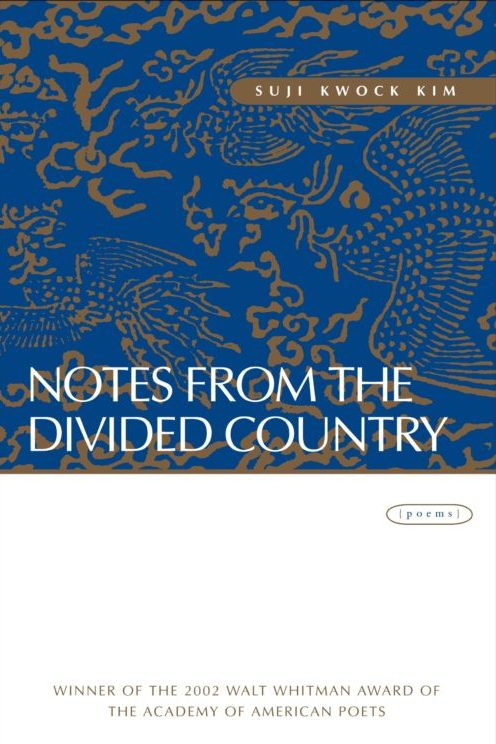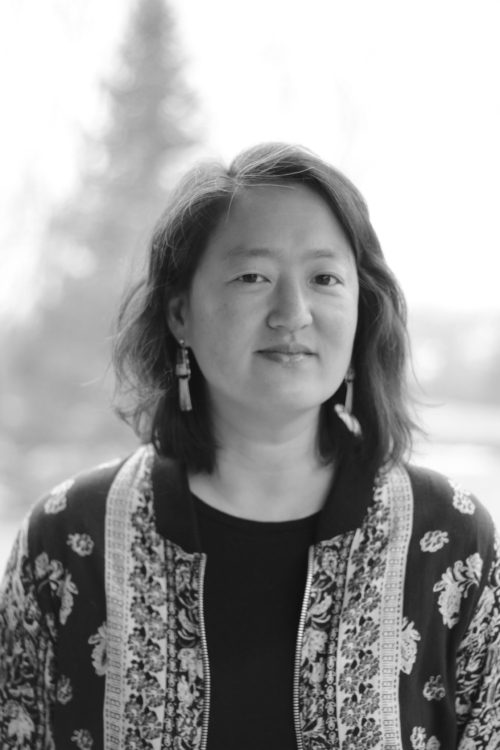Twenty years ago, in 2002, Suji Kwock Kim won the Walt Whitman Award of The Academy of American Poets for her debut collection, Notes From the Divided Country (Louisiana State University Press, 2003). A short list of things that did not exist then: K-Pop and the global influence of BTS, the TV show Squid Game, the film Parasite, Pachinko by Min Jin Lee, streaming K-dramas, snail bee moisturizer, and all the other ways Korean/Korean American culture influences our daily life. Twenty years ago, Korean/Korean American contributions to contemporary American poetry were slim.
I remember exactly when and how I came to know Notes From the Divided Country. It was 2011, at The Frost Place Conference on Poetry after Vievee Francis’s talk. Afterwards, when I became a bit emotional—her talk opened me up; the best talks do; I cried—she looked at me and told me to read Suji Kwock Kim, to search out and to read poetry by Korean/Korean American poets. As an adoptee, born in South Korea and raised in rural Vermont, this was a decisive moment for me.
Reading Kim’s collection in 2022 is a self-education on Korea’s historical past and its influence on contemporary Korean/Korean American life. It remains relevant especially in the context of the ongoing rise in anti-Asian racism. (Those of us who self-identify as Asian American know that this racism is not new.) Notes From the Divided Country offers insight into multi-generational trauma and place-based historical experiences; sequences describe the Japanese occupation of the peninsula (1910 – 1945). A five-part poem, “Generation,” opens the collection with the line “Once I was nothing: once we were one.” The speakers shift from the collective “we,” the ancestors, and then births the “I,” the individual. The last lines of the collection in “The Korean Community Garden in Queens” offer the speaker’s desire to merge the old with the new, to connect what is inherited from the past with present-day:
[…] How do they live without wanting to live
forever? May I, and their gardeners in the old world,
who kill for warring dreams and warring heavens,
who stop at nothing, see life and paradise as one.
“Monologue for an Onion” is one of my favorite poems. The onion’s personification is searing:
Hunt all you want. Beneath each skin of mine
Lies another skin: I am pure onion—pure union
Of outside and in, surface and secret core.
In the last stanza, the voice is accusatory, snarky, thrilling:
[…] Poor fool, you are divided at the heart,
Lost in its maze of chambers, blood, and love,
A heart that will one day beat you to death.
In 2020, the Pleiades 40.2 Summer Issue, featured a special folio on Korean American Women Poets, edited by E.J. Koh, which included 35 poets. Korean/Korean American influence on contemporary poetry is no longer a growing trend. It is an established section of contemporary American poetry, which will only continue to expand and evolve over time.




